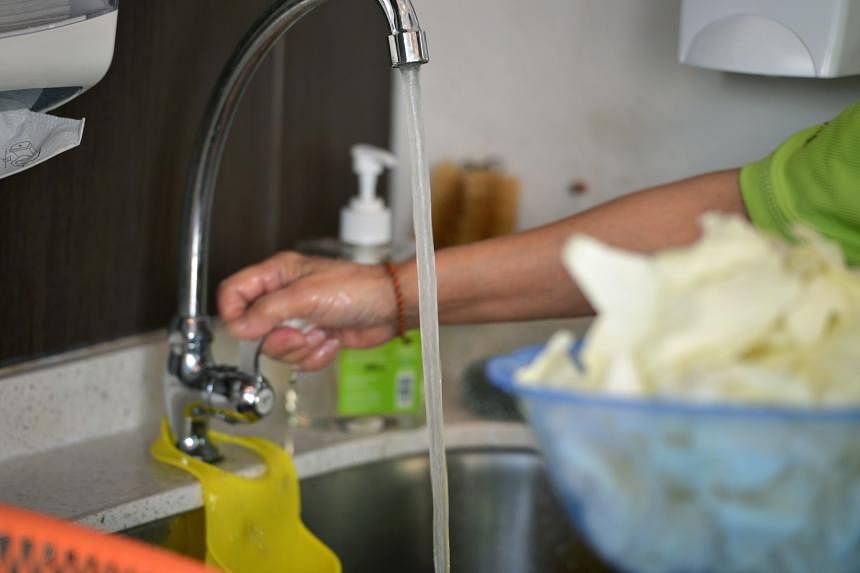SINGAPORE - The cost of delivering water to Singaporeans has gone up, and will likely continue to rise despite the use of innovative technologies to moderate prices.
These costs will need to be reflected in Singapore’s water prices, said Senior Minister of State for Sustainability and the Environment Amy Khor.
In a Facebook post on Tuesday, Dr Khor gave an update on the address she made at the 18th World Water Congress in Beijing on Monday.
In her post, she said water has always been a strategic issue in Singapore, and the country has worked over the past six decades to diversify water resources through the four national taps framework to enhance water security.
The four national taps refer to water from local catchment areas, imported water, Newater and desalinated water.
Dr Khor said: “This was only possible through steady investments in our water infrastructure and water technologies. Right-pricing water has allowed us to make such investments in a financially sustainable manner. Right-pricing water also serves to incentivise all of us to use water efficiently and to reflect on the value of the water we consume and use.”
Like many other countries today, Singapore is facing cost pressures linked to the production and distribution of water, due to factors such as high inflation and increased construction costs, she added.
“Even as we apply innovative technologies to moderate costs, the cost of delivering water has risen and will likely continue to rise,” Dr Khor said.
Water prices in Singapore were last reviewed in 2017, and went up by 30 per cent over two years.
In her speech at the congress, Dr Khor outlined the steps Singapore has taken to ensure water security through long-term planning, developing regulatory frameworks, and spurring innovation in the private sector, among other things.
“We right-price water in Singapore to reflect the cost of producing the next drop of this precious resource,” she said.
This, Dr Khor added, allows the country to continue essential investments in water infrastructure and innovations to address the challenges it faces in water scarcity.
“For instance, we are building the Deep Tunnel Sewerage System, a super-highway for used water that will allow us to collect and recycle every drop of water endlessly,” she said.
Singapore’s first large-scale dual-mode desalination plant, Keppel Marina East Desalination Plant, was also built to treat seawater and freshwater. The plant draws water from the sea to produce desalinated water in dry weather.
When it rains, the plant will use rainwater collected in Marina Reservoir to produce potable water, which requires less energy compared with desalination, Dr Khor said.
Another key plank is the integration of water and solid waste treatment facilities at Tuas Nexus, Singapore’s first integrated water and solid waste treatment facility.
Dr Khor cited the example of how treating food waste and used water sludge at the same time will help to produce 40 per cent more biogas and boost electricity generation, compared with treating these products separately. The electricity that is generated will help to power the operations of both facilities, she added.
Looking ahead, Dr Khor said Singapore will focus on two key nodes to ensure the availability and sustainable management of water for everyone.
First, national water agency PUB will continue to work closely with utility providers, global technology providers and research institutes to push the boundaries of water innovation.
Second, significant investments are necessary for a resilient and sustainable water supply as part of efforts to plan and invest for the future.
In 2021, Singapore rolled out floating solar photovoltaic systems in reservoirs to generate enough energy to power all of Singapore’s local waterworks, said Dr Khor. The large surface area of the reservoirs plays a dual role – in water storage as well as electricity generation.
To increase water efficiency on the industrial front, there are plans to introduce mandatory water recycling requirements for new projects in the water fabrication, electronics and biomedical industries.
Said Dr Khor: “With these measures in place, daily water savings could reach 15 Olympic-size swimming pools from 2035 onwards.”


